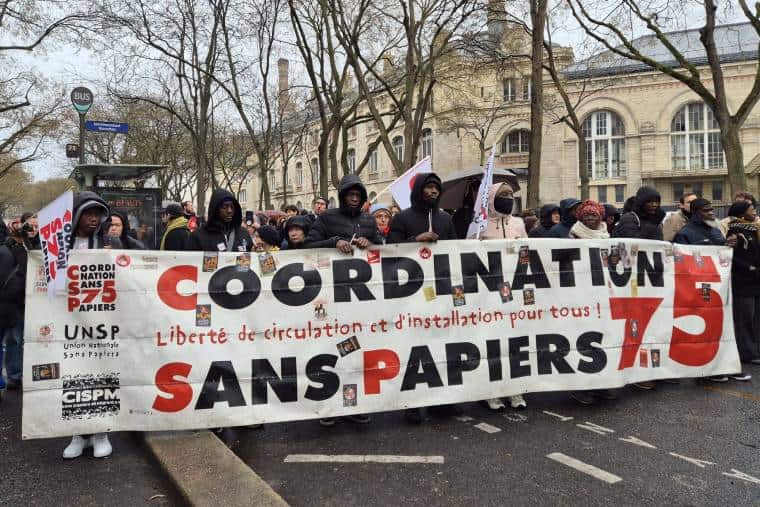Author: M Barbu
The Innate and Inseparable Ties Between Nuclear Weapons and Energy

What do Canada’s retired general Wayne Eyre and Saudi Prince Mohammed Bin Salman share in common? Answer: In their own ways, both have inadvertently warned the public about the deep relationship between nuclear weapons and nuclear energy.
The former’s warning came earlier this month, when the retired general told a conference in Ottawa that when it came to acquiring nuclear weapons, Canada should keep its “options open,” pointing out that Canada had “a good nuclear enterprise” including “the civilian infrastructure” and “the scientists.” Eyre, who served as Canada’s chief of the Defence Staff from 2021 to 2024, argued, “Let’s just have the conditions in place so that if we decide to go that way, we can do it in shorter order than some other countries who have no nuclear enterprise. It’s all about hedging.” Part of the strategy he recommended was to invest in aerospace and missile technology.
Why No One Is Winning the Russia-Ukraine War After Four Years

Looking up above Ukraine’s snaking front lines, some drones zip toward far-away targets while others hover lower— buzzing right above the heads of soldiers on the contact line, searching for their next target.
“There is constant activity in the air almost everywhere,” says one Ukrainian soldier on the front line. He declined to provide his name or any details about where he’s been deployed, as he was not authorized to speak.
The Muslim Brotherhood: Repository Of Foundational Documents – Part V: On The Qatar-Backed…
This report is part of MEMRI’s repository of contemporary and historical foundational documents of the Muslim Brotherhood (MB) movement.
The International Union of Muslim Scholars (IUMS), an arm of the Qatari regime for disseminating extremist Islamist, anti-Western and antisemitic ideology,[1] maintains close ties with the terrorist organization Hamas, in line with Qatar’s decades-long policy of supporting terrorist organizations around the world. Both the IUMS and Hamas are closely affiliated with the Muslim Brotherhood (MB), whose branches in Lebanon, Egypt, and Jordan were designated by the U.S. as terrorist on January 13, 2026, with a similar designation being considered by the E.U.[2]
The Tragedy of Great-Power Foreign Policy

For almost 30 years after the Cold War ended, American foreign policy elites argued that the United States should use its unmatched military and economic power as a force for transformation. For some, this meant working to expand the role of multilateral institutions such as NATO, promoting unfettered free trade, and protecting human rights worldwide, even by using military force. Others believed that the United States should wield its military power as democracy’s spear by subduing violent terrorists, overthrowing tyrannical regimes, and deterring potential revisionist powers. These views, however, were two sides of the same coin: underlying both was a belief that the United States must maintain its dominant position in the world and, when necessary, wield its might to defend liberal rights.
Sixty Russian agents identified: Prigozhin’s influence network taken over by the foreign intelligence service

At the “Company”, a group of “34 specialists,” sometimes referred to as “sociologists” or “political technologists,” work under Klyukin’s supervision. Responsible for monitoring and analyzing the political situation in 15 countries, they write briefing notes and conduct telephone surveys with thousands of respondents — 1,133 in the Democratic Republic of the Congo in June 2024, another 1,024 in Mali in August, and so on.
How Turkey Can Help the Economies of the South Caucasus to Diversify
A comprehensive, forward-looking strategy for the South Caucasus that also factors in the potential of Central Asia is critical to help the South Caucasus strengthen its competitiveness, diversify its economic relations, and move beyond its traditional path dependencies. One key step would be to establish a regional cooperation framework that leverages the industrial potential of countries such as Uzbekistan by linking them more closely with EU technology and Turkey’s commercialization capacity. This would make envisaged connectivity projects meaningful and truly transformative. At the same time, smaller South Caucasus economies could benefit from targeted sectoral transformation in areas such as cultural exchanges, ecotourism, and IT, which offer opportunities for inclusive job creation.
L’Europe et l’OTAN
Les nations européennes ne peuvent pas être souveraines au sein de l’OTAN.
La réunion annuelle du Forum économique mondial à Davos n’est pas réputée pour être un foyer de résistance anti-impérialiste, et encore moins pour son discours anti-américain. Pourtant, ce ton a indéniablement prévalu dans de nombreux discours prononcés lors du dernier Forum.
A warning for anti-fascists as ‘brown plague’ spreads in France

Anti-racist organiser Denis Godard spoke to Thomas Foster about the wave of fascist violence on the streets, how the political centre has enabled it—and what the left should do
The far right is on the offensive in France. Fascist mobs have rampaged through the streets, sometimes in groups hundreds-strong.
L’Amérique est-elle un pays indépendant ou un État fantoche d’Israël ?
L’Amérique est-elle un pays indépendant ou un État fantoche d’Israël ?
Comment les nations sont détruites
La fin de la Seconde Guerre mondiale ne marqua que le début de la destruction de l’Allemagne. Les Américains prirent le contrôle du système éducatif allemand. Ce contrôle leur permit de définir les programmes et de rédiger les manuels scolaires. Cette mainmise américaine sur l’éducation fut utilisée pour culpabiliser les Allemands d’être Allemands. On leur enseigna que le Troisième Reich était un crime contre l’humanité rendu possible par le nationalisme allemand. Chaque aspect du Troisième Reich devint indéfendable. Toute forme de nationalisme allemand fut suspectée d’être une résurgence du nazisme.
